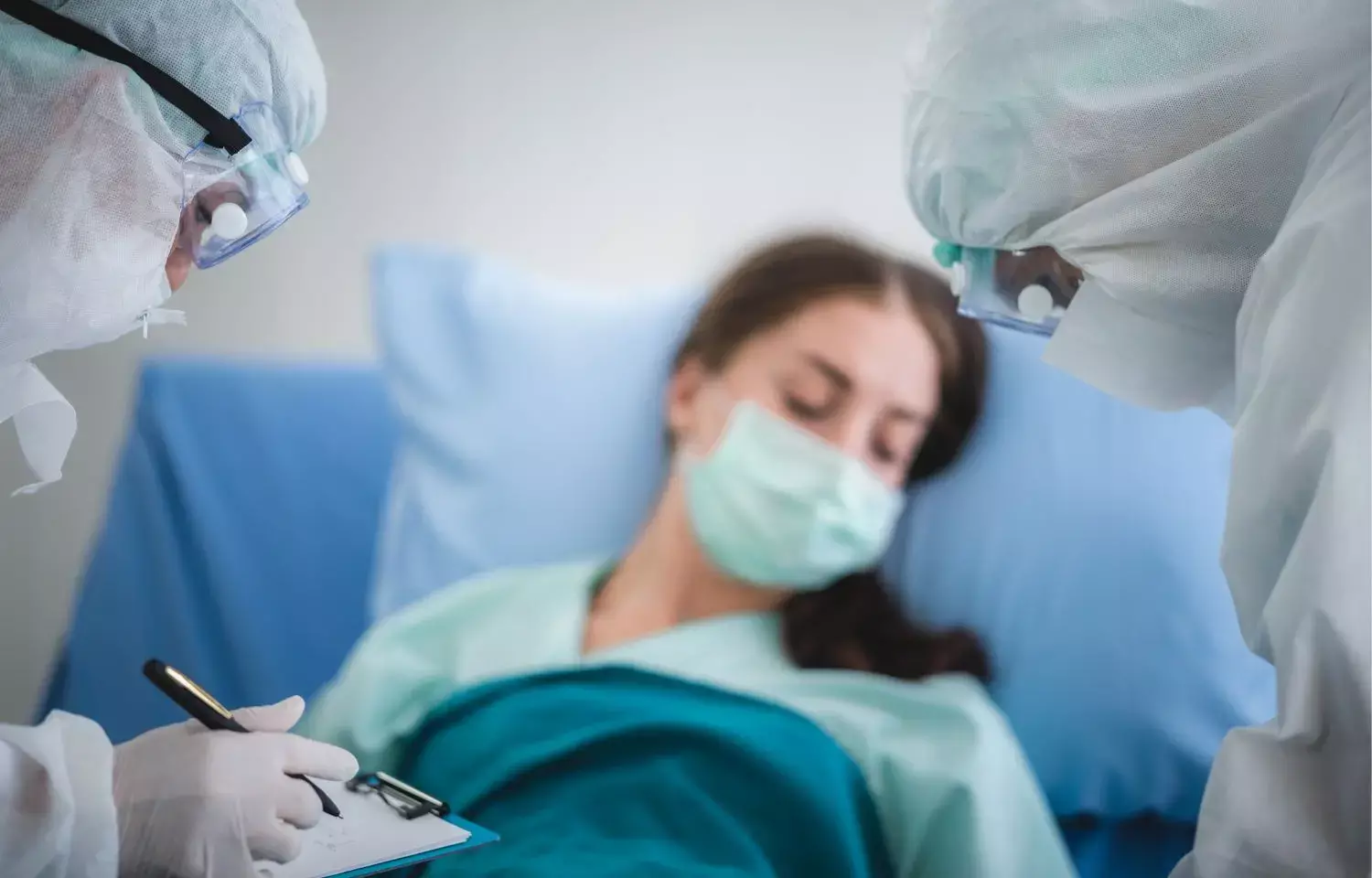- Home
- Medical news & Guidelines
- Anesthesiology
- Cardiology and CTVS
- Critical Care
- Dentistry
- Dermatology
- Diabetes and Endocrinology
- ENT
- Gastroenterology
- Medicine
- Nephrology
- Neurology
- Obstretics-Gynaecology
- Oncology
- Ophthalmology
- Orthopaedics
- Pediatrics-Neonatology
- Psychiatry
- Pulmonology
- Radiology
- Surgery
- Urology
- Laboratory Medicine
- Diet
- Nursing
- Paramedical
- Physiotherapy
- Health news
- Fact Check
- Bone Health Fact Check
- Brain Health Fact Check
- Cancer Related Fact Check
- Child Care Fact Check
- Dental and oral health fact check
- Diabetes and metabolic health fact check
- Diet and Nutrition Fact Check
- Eye and ENT Care Fact Check
- Fitness fact check
- Gut health fact check
- Heart health fact check
- Kidney health fact check
- Medical education fact check
- Men's health fact check
- Respiratory fact check
- Skin and hair care fact check
- Vaccine and Immunization fact check
- Women's health fact check
- AYUSH
- State News
- Andaman and Nicobar Islands
- Andhra Pradesh
- Arunachal Pradesh
- Assam
- Bihar
- Chandigarh
- Chattisgarh
- Dadra and Nagar Haveli
- Daman and Diu
- Delhi
- Goa
- Gujarat
- Haryana
- Himachal Pradesh
- Jammu & Kashmir
- Jharkhand
- Karnataka
- Kerala
- Ladakh
- Lakshadweep
- Madhya Pradesh
- Maharashtra
- Manipur
- Meghalaya
- Mizoram
- Nagaland
- Odisha
- Puducherry
- Punjab
- Rajasthan
- Sikkim
- Tamil Nadu
- Telangana
- Tripura
- Uttar Pradesh
- Uttrakhand
- West Bengal
- Medical Education
- Industry
COVID-19 vaccination after infection reduces reinfection risk by half: JAMA

Rhode Island: Researchers have found in a new study that COVID-19 vaccination after infection reduces reinfection risk by half.The probability of SARS-CoV-2 reinfection among people who choose not to get the vaccine was comparatively high after recovering from COVID-19, says an article published in the Journal of American Medical Association.
The findings indicate that in people who have recovered from COVID-19, subsequent completion of the primary vaccination series reduced reinfection risk by approximately half.
According to recent research, people who contract SARS-CoV-2 are vulnerable to re-infection. It is unclear to what extent vaccination can protect those who have already contracted SARS-CoV-2 against re-infection. In order to determine the likelihood of SARS-CoV-2 reinfection and the efficacy of immunization following COVID-19 recovery, Nickolas Lewis and colleagues undertook this investigation.
This study conducted a population-based, retrospective analysis of COVID-19 vaccines, laboratory-confirmed illnesses, hospitalizations, and fatalities from March 1, 2020, to December 9, 2021, during the time when wild-type, Alpha, and Delta strains of SARS-CoV-2 were the most prevalent. Participants were divided into three subpopulations: LTCC employees, long-term congregate care (LTCC) residents, and the general population. Participants were Rhode Island residents aged 12 years and older who had previously been diagnosed with COVID-19 and were unvaccinated at the time of their first infection. Between October 2021 and January 2022, data was examined. The second dose of an mRNA vaccine or one dose of a vector virus vaccine, which is followed by 14 days, marks the end of the initial immunization series.
The primary outcome was SARS-CoV-2 reinfection, which is defined as a positive polymerase chain reaction (PCR) or antigen test result obtained in the lab at least 90 days after the initial positive PCR or antigen test result.
The key findings of this study were as follows:
1. Overall, 94 516 people from the general community, 3124 LTCC residents, and 2877 LTCC staff were eligible.
2. The likelihood of reinfection for those who remained unvaccinated at 9 months after recovering from a prior COVID-19 infection was 10.0% for LTCC personnel, 13.0% for residents, and 1.9% for the general population.
3. After adapting for potential sociodemographic and clinical confounders as well as temporal variation in infection rates, fulfillment of the primary vaccination series after infection was associated with 49% protection among LTCC residents, and 47% protection among LTCC employees, and 62% protection in the general population against reinfection.
In conclusion, the results of this study indicate that the risk of reinfection among those who remained unvaccinated, including the general community as well as LTCC residents and personnel, was rather high after recovering from COVID-19. After recovering from COVID-19, vaccination was associated with significant benefits, cutting the chance of reinfection by around half. To lower their risk of reinfection, people who have recovered from COVID-19 but are still unvaccinated should be urged to finish their shots as soon as they are able.
Reference:
Lewis, N., Chambers, L. C., Chu, H. T., Fortnam, T., De Vito, R., Gargano, L. M., Chan, P. A., McDonald, J., & Hogan, J. W. (2022). Effectiveness Associated With Vaccination After COVID-19 Recovery in Preventing Reinfection. In JAMA Network Open (Vol. 5, Issue 7, p. e2223917). American Medical Association (AMA). https://doi.org/10.1001/jamanetworkopen.2022.23917
Neuroscience Masters graduate
Jacinthlyn Sylvia, a Neuroscience Master's graduate from Chennai has worked extensively in deciphering the neurobiology of cognition and motor control in aging. She also has spread-out exposure to Neurosurgery from her Bachelor’s. She is currently involved in active Neuro-Oncology research. She is an upcoming neuroscientist with a fiery passion for writing. Her news cover at Medical Dialogues feature recent discoveries and updates from the healthcare and biomedical research fields. She can be reached at editorial@medicaldialogues.in
Dr Kamal Kant Kohli-MBBS, DTCD- a chest specialist with more than 30 years of practice and a flair for writing clinical articles, Dr Kamal Kant Kohli joined Medical Dialogues as a Chief Editor of Medical News. Besides writing articles, as an editor, he proofreads and verifies all the medical content published on Medical Dialogues including those coming from journals, studies,medical conferences,guidelines etc. Email: drkohli@medicaldialogues.in. Contact no. 011-43720751


